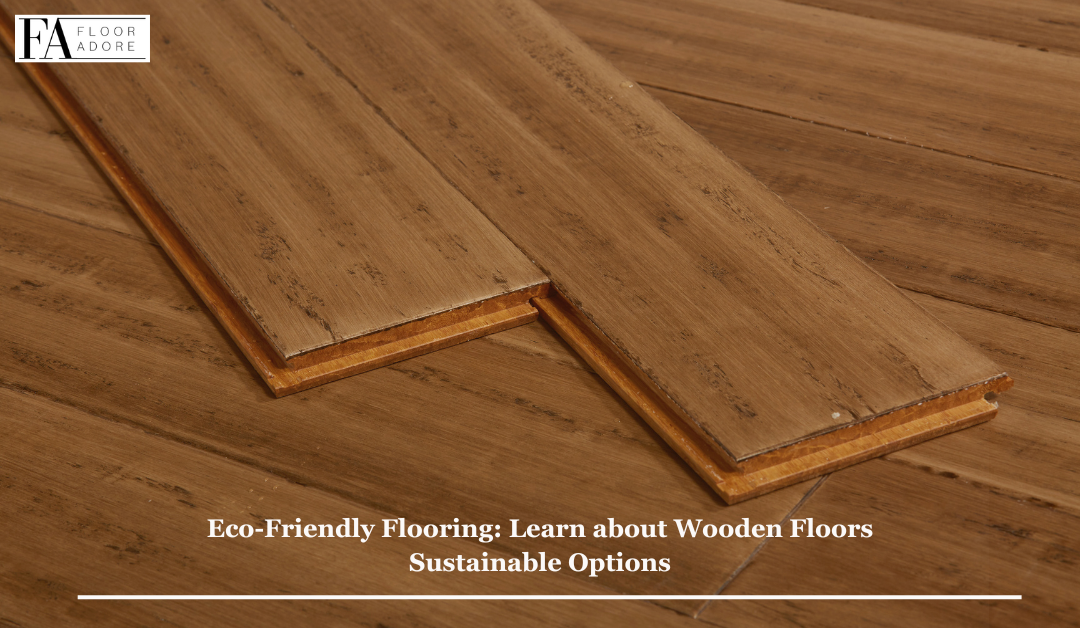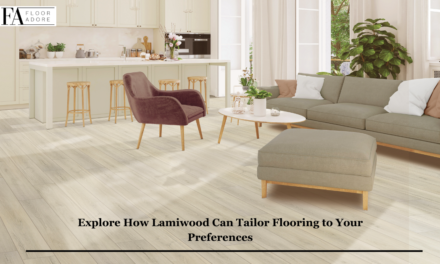In recent years, there has been a growing awareness of the environmental impact of flooring materials, leading many homeowners to seek eco-friendly alternatives. Wooden flooring emerges as a sustainable option that not only enhances the aesthetics of a space but also minimizes environmental harm. Let’s explore the sustainable options available for wooden floors and why they are an eco-conscious choice.
Responsibly Sourced Wood
One of the primary considerations for eco-friendly wooden flooring is the sourcing of the wood itself. Opting for wood that is certified by organizations such as the Forest Stewardship Council (FSC) ensures that it comes from responsibly managed forests. FSC-certified wood is harvested in a manner that promotes biodiversity, protects wildlife habitats, and respects the rights of indigenous communities. By choosing responsibly sourced wood, homeowners can support sustainable forestry practices and help preserve precious ecosystems.
Reclaimed Wood
Another eco-friendly option for wooden flooring is reclaimed wood, which involves repurposing wood from old buildings, barns, or other structures. Reclaimed wood not only reduces the demand for new timber but also gives new life to materials that would otherwise end up in landfills. In addition to its environmental benefits, reclaimed wood offers unique character, history, and charm, adding a sense of authenticity and nostalgia to interior spaces.
Bamboo Flooring
Bamboo flooring has gained popularity as a sustainable alternative to traditional hardwood floors. Bamboo is a rapidly renewable resource that reaches maturity in just a few years, making it an environmentally friendly choice. Additionally, bamboo is durable, resistant to moisture and pests, and available in a variety of styles and finishes. By opting for bamboo flooring, homeowners can reduce their carbon footprint while enjoying the beauty and durability of wood.
Cork Flooring
Cork flooring is another eco-friendly option that is derived from the bark of cork oak trees. Harvesting cork does not harm the trees, as only the outer bark is removed, allowing the tree to regenerate and continue growing. Cork flooring is naturally resilient, comfortable underfoot, and hypoallergenic, making it an ideal choice for allergy sufferers. Furthermore, cork forests support diverse ecosystems and provide habitat for endangered species, making cork flooring a truly sustainable option.
Low-VOC Finishes
In addition to choosing sustainable wood species, eco-friendly wooden flooring also involves selecting low-VOC (volatile organic compound) finishes and adhesives. Traditional finishes and adhesives can release harmful chemicals into the air, contributing to indoor air pollution and adverse health effects. Low-VOC or water-based finishes are free from toxic chemicals and emit fewer harmful fumes, creating a healthier indoor environment for occupants.
Conclusion
In conclusion, wooden flooring offers a sustainable option for homeowners seeking to minimize their environmental footprint. Whether through responsibly sourced wood, reclaimed materials, bamboo, cork, or low-VOC finishes, there are numerous eco-friendly options available for wooden floors. By choosing sustainable flooring materials, homeowners can create beautiful and functional spaces while contributing to environmental conservation and preservation for future generations.





